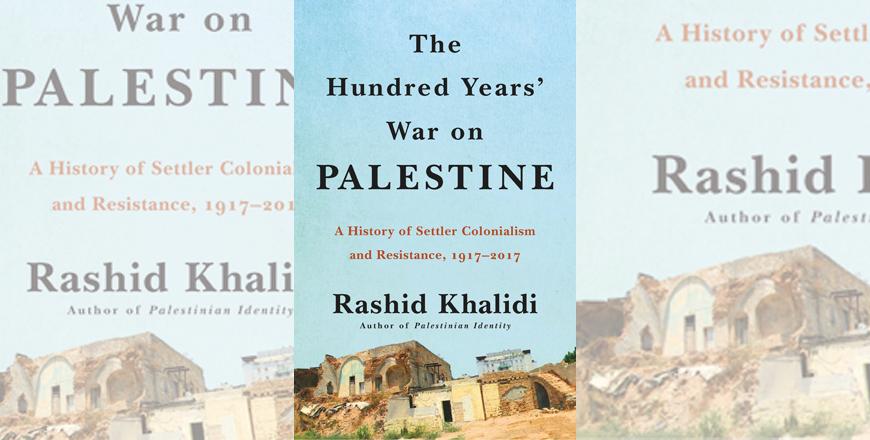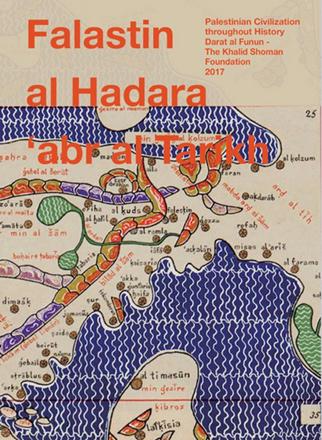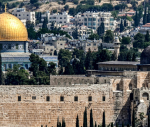You are here
A comprehensive political history of Palestine
By Sally Bland - Mar 13,2022 - Last updated at Mar 13,2022

The Hundred Years’ War on Palestine: A History of Settler Colonialism and Resistance, 1917-2017
Rashid Khalidi
New York: Metropolitan Books, 2021
Pp. 319
Having previously published eight major books on Palestine’s modern history and US policy in the Middle East, Rashid Khalidi has crafted his new book somewhat differently. As indicated by the title, the time span covered is much greater. Also, he goes beyond analysis to set out his own proposals for what the Palestinians should do now to achieve liberation.
Most intriguingly, the book is more personal, since he interweaves incidents from the time he spent in the region, mainly in Beirut and Jerusalem, as well as important roles played by a number of his relatives — all of them members of the prominent and learned Jerusalem family, the Khalidis. This gives rise to many implicit themes in the book (in additional to the obvious ones), such as the importance of education and culture, and it makes the trauma of dispossession experienced by most Palestinian families very real.
The book title shows that the author knows that words matter. Even the well informed will be more impacted by reading “The Hundred Years’ War on Palestine”, than by a list of the various wars and other Israeli aggressions against Palestinians. Khalidi’s subtitle highlights the importance of pinpointing the essence of the crisis as settler colonialism. Khalidi has good reason to know the value of words, both from his many years as a foremost scholar on Palestine at Chicago and Columbia Universities, and from his role as advisor to the Palestinian delegation to the 1991 talks in Madrid and subsequent negotiations.
Khalidi’s systematic coverage of the 100 years starts with the first declaration of war, the 1917 Balfour Declaration, but one of his relatives had an earlier intervention. In the Khalidi Library in Jerusalem, Rashid found a letter from his great-great-great uncle, Yusuf Diya al Din Pasha al Khalidi, mayor of Jerusalem, to the French chief rabbi, Zadoc Kahn, with the intention that it be forwarded to Theodour Herzl. In his letter, Yusuf Diya, quite politely, warned against Zionism’s plan to take over Palestine, due to the opposition it would meet from the indigenous population. This touches on another main theme which Khalidi repeatedly stresses in the book: that it is only the Palestinians’ sustained resistance that has kept their cause from being totally eclipsed. At this point in time, when Palestine’s future looks so dismal, this reminder has political as well as historical implications.
In covering the second declaration of war, 1947-1948, Khalidi writes, “Despite their manifest weakness, the dispersed, defeated Palestinians, written out of history by the victors of 1948, largely ignored or muzzled by the Arab governments, and sacrificed on the altar of the great powers’ global ambitions, repeatedly managed to upset the regional status quo that was so unfavourable to them”. (p. 95)
This book covers literally all important events and aspects of the 100 years, bound together by Khalidi’s insightful analysis and much insider information. There is measured critique of the Palestinian leadership and some Arab governments but outright condemnation is reserved for US and Israeli policy. If US policy has been consistently slanted towards Israel at least since the 1960s, by the time the Trump Administration rolls around, Khalidi surmises that the US has simply “outsourced” its policy to be written by the Israeli right wing.
This is a book that will appeal to both those well versed in the question of Palestine and to those who want to learn the basics and more. Khalidi has astute, up-to-date observations on US politics, including an explanation of why the slow but steady shift in US public opinion in the Palestinians’ favour has not been reflected in official policy, and why the shift in the Democratic Party’s base towards Palestine is not reflected in the leadership. It comes down to money. “With the incessant fundraising that is the central concern of American politicians, and the rightward turn of the Democrats in the late 1980s, the party became more favourable to moneyed interests. As a result, the views of donors have been more important to the party’s leaders and elected officials than those of the party’s base or of its voters.” (p. 229)
Accordingly, some of his carefully studied recommendations for future actions include the Palestinian leadership’s need to understand how US politics work, while at the same time not assigning the US an outsized role as it has had in past negotiations. Most of his proposals will be welcomed by many if not most Palestinians; similar ideas have been put forward before but not implemented for various reasons. One of his basic ideas may, however, generate controversy: “While the fundamentally colonial nature of the Palestinian-Israel encounter must be acknowledged, there are now two peoples in Palestine, irrespective of how they came into being, and the conflict between them cannot be resolved as long as the national existence of each is denied by the other. Their mutual acceptance can only be based on complete equality of rights, including national rights…” (p. 246)
It is noteworthy that Khalidi’s position is not based on any political or philosophical concession to Zionism, but on belief that all nationalisms and nations are partially rooted in myth.
Related Articles
Falastin Al Hadara ‘abr Al Tarikh — Palestinian Civilisation throughout HistoryTranslated from the Arabic by Joud Halawani Al TamimiAmman: T
Decolonising Israel, Liberating Palestine: Zionism, Settler Colonialism, and the Case for One Democratic StateJeff HalperLondon: Pluto Press
Focusing on the city which many consider to lie at the heart of the Palestinian-Israeli conflict, this book presents a panorama of real life in Arab Jerusalem, particularly during the British Mandate years — and how it abruptly changed in 1948.

















